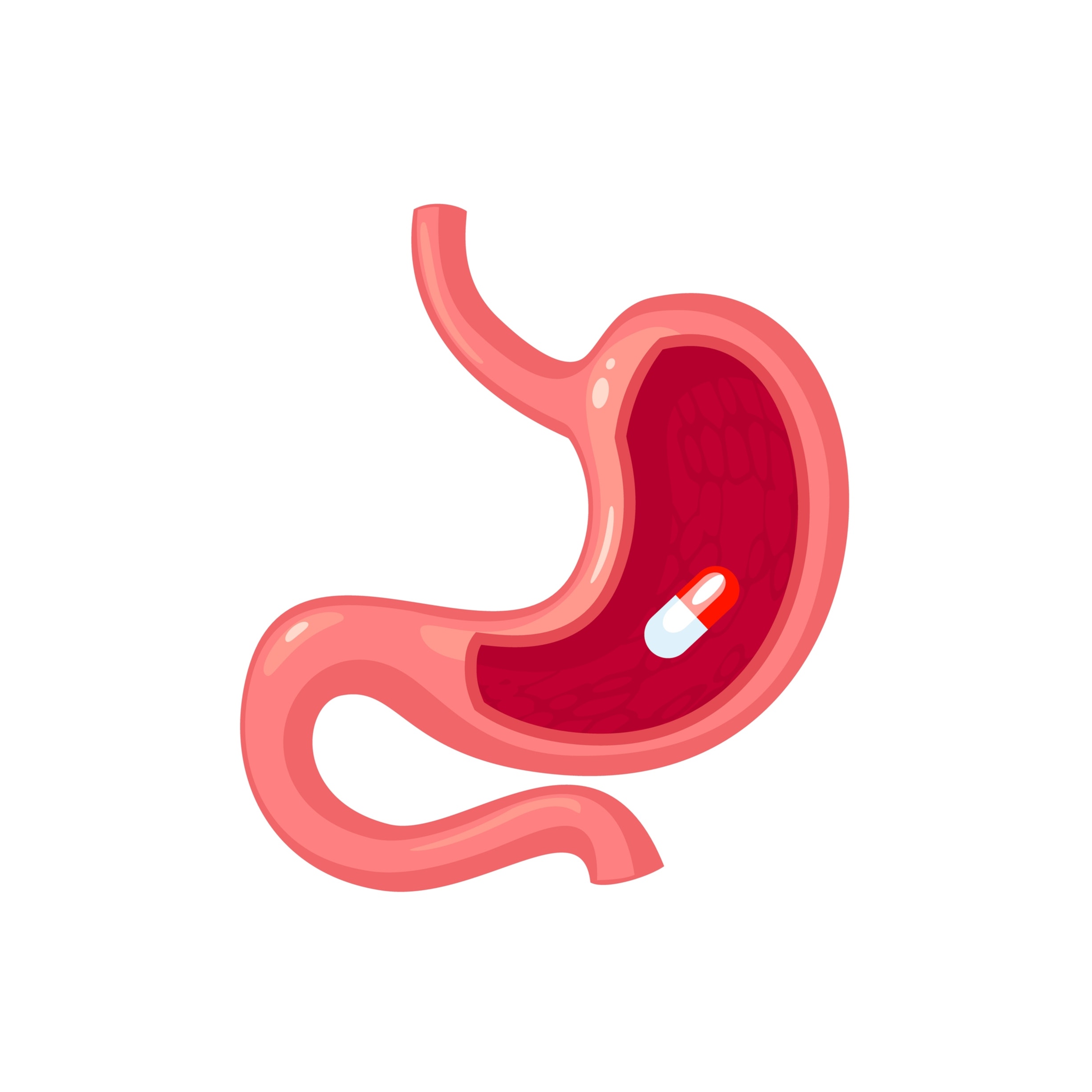Milli-injector Capsules Enable Oral Dosing of Nucleic Acids
Nucleic acid therapeutics and vaccines hold vast potential for treating and preventing a broad range of diseases. However, their utility is currently limited by the need for injectable delivery. Developing oral dosage formulations promises to improve patient uptake of vaccines, better support long-term therapies, and provide the ability to transfect cells locally in the gastrointestinal (GI) tract. In a recent publication in Matter, researchers at Massachusetts Institute of Technology explain how orally dosed mRNA nanoparticles were delivered directly into the gastric lining of swine using a self-orienting millimeter-scale applicator (SOMA) device. This method demonstrated protein translation in vascularized gastric mucosa tissue, suggesting its applicability for human use.

Combining mRNA with SOMA to address oral delivery challenges
Using mRNA to create vaccines and therapeutics for oral dosing overcomes the inherent volume constraints of ingestible capsules by supporting protein amplification. But, because the GI tract rapidly degrades nucleic acids after ingestion and prohibits biomacromolecule uptake, mRNA must be delivered intracellularly to be of therapeutic benefit. SOMA addresses this need by providing a milli-needle injection of orally dosed drugs directly into the gastric lining—it has already proven successful for delivering small molecules, peptides, and monoclonal antibodies. Now, the use of SOMA has been extended to mRNA delivery.
Improving nanoparticle transfection efficiency and mRNA dose
To develop the SOMA mRNA delivery strategy, libraries of branched and branched hybrid poly(β-amino ester) nanoparticles were complexed with CleanCap® EGFP mRNA and used for cellular transfection. Flow cytometry analysis of protein expression revealed several hits, including a polymer with superior transfection efficiency to the current gold standard gene carrier, branched polyethyleneimine. By lyophilizing and reconstituting the best-performing nanoparticles at a higher concentration, the dose of mRNA that could be loaded into an orally dosed capsule was increased.
Demonstrating in vivo efficacy
Nanoparticles loaded with TriLink’s CleanCap mRNA encoding Cre recombinase (Cre) were used for dosing genetically modified mice designed to produce the fluorescent protein tdTomato in the presence of the enzyme. This involved direct injection into the stomach mucosa (to mimic SOMA dosing in larger species) and led to measurable tdTomato expression in multiple stomach cell types and liver cells.
These findings supported oral dosing of swine with SOMA pills containing nanoparticle-encapsulated Cre mRNA. Again, IHC analysis confirmed the presence of Cre in stomach tissue, although it was proposed that higher dosing might be necessary to achieve systemic uptake in these animals. Critically, injecting nucleic acids into the gut lining via an orally administered device appears to be a feasible method for therapeutic delivery; it also provides opportunities for modification to target other areas of the GI tract.
Featured product:: CleanCap® EGFP mRNA and CleanCap® Cre mRNA
Article Reference:Abramson A, Kirtane AR, Shi Y, et al., Oral mRNA delivery using capsule-mediated gastrointestinal tissue injections, Matter. 2022; 5:1–13.


